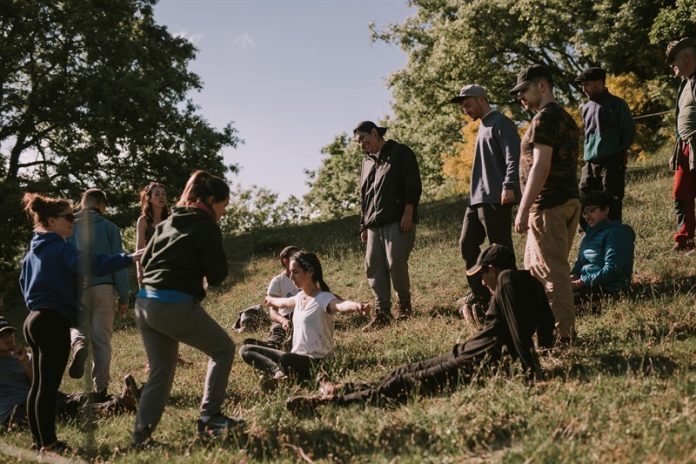Temporary work for young people – for those in education process especially during the holidays season – is a great opportunity to quickly and effectively earn the funds needed for living, subsistence, learning or just entertainment. This is an opportunity especially for people from poorer countries of the European Union who find temporary work in a richer country (e.g. Poles working in Western Europe), because the hourly/day rate is much more higher and very attractive for them and even if they subtract the cost of living on the spot, after returning home, the savings from earnings significantly exceed the amounts that a given person would earn in their own country.
Even more attractive and differentiate form is a work exchanges, which are based on the idea of a collaborative exchange between someone who wants to offer their time and skills while traveling, and a host who is looking for a certain kind of help.
As a traveler, youth can offer a particular skill that hosts are looking for; something that they have experience with and would like to develop further. In exchange, youth can receive accommodation for the period they’ve agreed to work in, along with other benefits like meals, discounts on events and trips, language lessons, skills, competences & knowledge courses etc.
There’s no limit to what kinds of places offer this form of exchange: hostels, campsites, NGOs, social projects, farms, ecovillages, restaurants, and even small businesses host travelers from around Europe (and world) for work exchanges.
It aims to inspire a sense of active European citizenship, solidarity and tolerance among young Europeans and to involve them in shaping their own as well as Union’s future. It promotes mobility within and beyond the EU’s borders, non-formal learning and encourages the employability and inclusion of all young people, regardless of their educational, social and cultural backgrounds, skin colour, sexual orientation or disabilities, eliminates social differences that are visible in one’s own country and neutralize in a foreign one. At the same time it means promoting tolerance, building mutual understanding and cooperation between youth from different European countries.
Social, economic and cultural factors may complement the achievement of equity and inclusion in education and in the labour market, where the presence is often the next stage of the life path after completing education or in parallel still during it. What is important: inclusion is for all and inclusion is a process. Forpeople with disabilities but also others on account of gender, age, location, poverty, disability, ethnicity, indigeneity, language, religion, migration or displacement status, sexual orientation or gender identity expression, incarceration, beliefs and attitudes.
Including youth in the labour market in general is a major challenge facing many European countries: the important moment of the transition from education to employment, the challenges and specific barriers facing young and vulnerable people today, combating economic inactivity and exclusion of young people. The EU supports Member States makes efforts to reduce youth unemployment and inactivity. The aim is to help young people develop their potential to shape the future of the EU.
Young people deserve all possible opportunities to develop their full potential to shape the future of the EU and to thrive. They often face a difficult start in the labour market and his has been emphasized by the coronavirus pandemic. There are a lot of European initiatives supporting there aims, big ones like Youth Guarantee as well as numerous initiatives & projects as i.e. the FOLM Project – From Outdoors to Labour Market – which has benefited from a €3,400,000 grant from Iceland, Liechtenstein and Norway under the EEA and Norway Grants. The project participants were given access to a virtual platform designed to help NEETs – young people outside employment and education – with their training, advisory, and technical support when entering the labour market.
The expertise underlying the FOLM project has been based on ‘Social and personal development through non-institutionalized education model’ developed by the University of Edinburgh. The aim of the FOLM project was to develop young people’s every day and professional skills in order for them to become active job market participants, motivated to continue their education. As the basic assumption of the FOLM project was to address activities to young people from the NEETS group, also from small towns, which is usually automatically associated with facing social exclusion for various reasons (skin colour, sexual orientation – i.e. in Poland the general tendency is that the smaller the town, the lower the level of tolerance towards different differences), this project has greatly become part of the activities for promoting the value of diversity and inclusion among young people.


